

Multilingual Research Center (MRC)
MRC Speaker Series
Preparing Teachers of Multilingual Learners: Insights into Curricular Components and the Development of Pre-Service Teachers’ Beliefs about Multilingualism
Dr. Tobias Schroedler
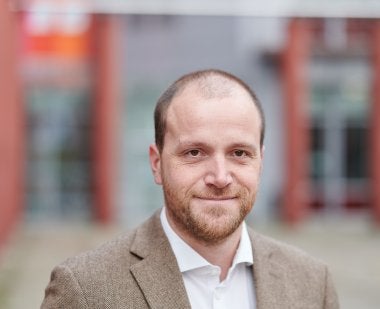
While preparing teachers to cater for the needs of multilingual learners is by now a relatively established field of research, evolving societal developments and diverse local conditions continue to present new challenges and generate varying needs (Wernicke et al. 2021, Schroedler 2021). This presentation begins by introducing the local context of Germany’s Ruhr Area, one of Europe’s most linguistically diverse regions. Some explanations on how teacher education functions within the German education system and issues of ongoing educational inequities (with regard to ‘migrant learners’) are addressed. Regulations require all pre-service teachers to complete coursework on German as an additional language (GAL) and multilingualism. To assess the program’s effectiveness, a longitudinal study was launched that surveys the affective-motivational competence development concerning multilingualism in teaching and learning of two full cohorts (n=499) of pre-service middle school teachers at four measuring points (Schroedler et al. 2023, 2024). A validated questionnaire (Fischer 2020) was used to measure the participants’ professional beliefs (Borg 2001) on three scales. Moreover, participants’ relevant opportunities to learn (OTL) were captured along 16 themes with immediate relevance to German as an additional language and multilingualism (Ehmke & Lemmrich 2018). The study’s data show significant improvements of participants’ beliefs about multilingualism and multilingual learners across all scales from t1 to t4. The analysis of the 16 OTL-themes provides a nuanced picture of how the attained curriculum corresponds to the intended curriculum. The presentation concludes with a critical reflection of the study’s research methodology and findings, followed by an open discussion in which all participants are invited to share their perspectives on preparing future teachers for the needs of
multilingual learners, including relevant curricular structures and contents.
Bio: Dr. Tobias Schroedler is Junior Professor of Multilingualism and Social Inclusion at the University of Duisburg-Essen, Germany. He holds an M.Phil. (2011) and Ph.D. (2016) in Applied Linguistics from Trinity College Dublin (Ireland). Before his current role, he was a postdoctoral researcher at the University of Hamburg (Germany) and has been visiting scholar at Macquarie University Sydney (Australia), as well as the universities of Stellenbosch and Pretoria (South Africa). His research addresses multilingualism in education, multilingual pedagogies, institutional multilingualism language use in the labor market, and language ideologies, including the prestige and value assigned to languages. He currently leads five funded research projects on international comparisons of heritage languages in education, on using multilingual repertoires in the workplace, and on teacher professionalization for multilingual learning contexts.
Wednesday, October 8, 2025, 3:00-4:00pm
Benjamin Building, EDU 0306
Note: This talk is offered as an in-person only event and will not be recorded. Please save the date, and we look forward to seeing you there!
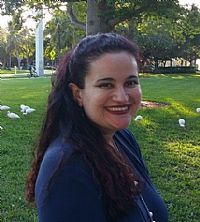
Dr. Luciana C. de Oliveira
A Language-Based Approach to Content Instruction (LACI): Scaffolding for Literacy Development
Abstract: Scaffolding is a challenging task in elementary classrooms. Drawing on a research study, the presenter describes how a first grade teacher utilized a language-based approach to content instruction (LACI) to provide scaffolding to support emergent to advanced bilinguals’ literacy learning. LACI is a teacher education model developed over the past 12 years in elementary and secondary classrooms in the United States.
Bio: Luciana C. de Oliveira, Ph.D., is Professor and Chair in the Department of Teaching and Learning in the School of Education and Human Development at the University of Miami, Florida. Her research focuses on issues related to teaching English language learners (ELLs) at the K-12 level, including the role of language in learning in the content areas and teacher education, advocacy and social justice. Currently, Dr. de Oliveira’s research examines scaffolding in elementary classrooms and multimodal representation in picture books. She is the author or editor of 21 books and over 180 publications in various outlets. She is President (2018-2019) of TESOL International Association.
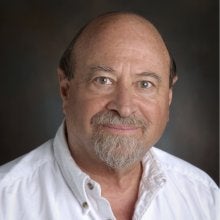
Dr. David C. Berliner
Confronting Educational Myths and Lies: The Trump Edition
Abstract: The general public, President Trump, and Secretary of Education DeVos hold many unsupportable views about education. In this presentation, I will explore some of these views, including: misunderstandings about the alleged STEM crisis; the status of the USA in international competitions, and the effects of teachers on standardized tests of achievement. I will also address the role that family income and housing policies play in educational outcomes; domestic school spending, and the effects of school funding on educational outcomes. Lastly, I turn to the effectiveness of private, voucher, and virtual schools and the safety of children in our public schools.
Bio: David C. Berliner is Regents’ Professor of Education, Emeritus, at Arizona State University. He has taught at the Universities of Arizona and Massachusetts, Teachers College and Stanford University, and at universities in Canada, Australia, The Netherlands, Denmark, Spain, and Switzerland. He is a member of the National Academy of Education, the International Academy of Education, and a past president of both the American Educational Research Association (AERA) and the Division of Educational Psychology of the American Psychological Association (APA). He is a Fellow of AERA and of the National Education Policy Center. He has won numerous awards for his work on behalf of the education profession and authored or co-authored over 400 articles, chapters and books. Among his best-known works are the six editions of the text Educational Psychology, co-authored with N. L. Gage; The Manufactured Crisis, co-authored with B. J. Biddle; Collateral Damage: How High-stakes Testing Corrupts American Education, co-authored with Sharon Nichols; and 50 Myths and Lies That Threaten America’s Public Schools, co-authored with Gene V. Glass. His interests include the study of teaching, teacher education, and educational policy.
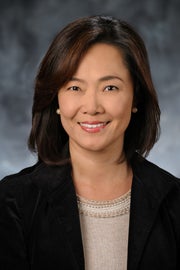
Dr. Jinsook Lee
Making connections across spaces: Understanding the opportunities and constraints for multilingual development among immigrant children
Abstract: The future welfare of our society will be greatly influenced by our ability to successfully educate the nearly 18 million children of immigrants, who are not only the fastest growing US student population, but also among the most vulnerable to academic hardships and poverty. Studies have shown that immigrant children with high levels of multilingual competence have stronger academic performance, enhanced cognitive flexibility, and greater self-esteem in comparison to their monolingual counterparts. Despite these advantages, children of immigrants typically are not able to develop or maintain their multilingual skills in our current educational system. The first part of the talk will present findings from a longitudinal study investigating howvariations in interactions, resources, and spaces shape the outcomes of young Korean and Mexican children’s multilingual development. The second part will discuss the need for more deliberate strategies to support multilingual development in schools.
Bio: Jin Sook Lee is Professor of Education in the Gevirtz Graduate School of Education at the University of California, Santa Barbara, where she is also an affiliate faculty member in the Department of Linguistics and Asian American Studies. Her research examines sociocultural factors that influence the learning and teaching processes of bilingual children as well as the maintenance and development of heritage languages among children of immigrant families. Her work has been supported by the Foundation for Child Development, National Institute of Health, and National Science Foundation and has been published in journals such as Review of Research in Education, International Journal of Bilingual Education and Bilingualism, Bilingual Research Journal, Linguistics and Education, and the Journal of Early Childhood Research. She is a Fulbright Senior Scholar in Applied Linguistics (2011) and a recipient of the Foundation of Child Development Young Scholars Award (2008). At UCSB, she teaches courses on second language learning and teaching, language and culture, and language research methods and is the current director of an academic outreach program, SKILLS (School Kids Investigating Language in Life and Society), and UCSB’s Interdisciplinary Emphasis in Applied Linguistics.
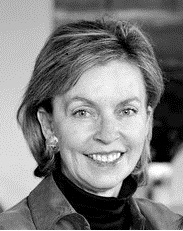
Dr. Teresa McCarty
Culturally Sustaining/Revitalizing Pedagogy and Academic Well-Being—Lessons from Indigenous Education
Abstract: This presentation explores recent research and practice on critical culturally sustaining/revitalizing pedagogy (CSRP) in Indigenous education (Lee & McCarty, 2017; McCarty & Lee, 2014). The presentation foregrounds academic well-being as a holistic alternative to conventional measures of academic achievement, encompassing learners’ intellectual, cultural, linguistic, affective, and physical well-being. Building on Ladson-Billing’s (1995) call for culturally relevant pedagogy, extensive research on Indigenous culture-based education, and Paris and Alim’s (2017) recent work on culturally sustaining pedagogies, CSRP seeks to revitalize and sustain Indigenous cultural and linguistic practices disrupted by colonization, and promote education parity and equity. As an expression of Indigenous sovereignty, CSRP is inherently decolonizing, recognizing the need for educational accountability to Indigenous communities. Examining selected cases, the presentation highlights the potential of CSRP to promote the academic well-being of Indigenous and other minoritized learners, both inside and outside of schools.
Bio: Teresa L. McCarty is the G.F. Kneller Chair in Education and Anthropology, and Faculty in American Indian Studies at the University of California, Los Angeles. Her research, teaching, and outreach focus on Indigenous education, language education planning and policy, and ethnographic studies of education in and out of schools. Her recent books include “To Remain an Indian”—Lessons in Democracy from a Century of Native American Education (with K. Tsianina Lomawaima, 2006), Language Planning and Policy in Native America—History, Theory, Praxis (2013), Indigenous Youth and Multilingualism (with L.T. Wyman and S.E. Nicholas, 2014), Indigenous Language Revitalization in the Americas (with S.M. Coronel-Molina, 2016), and The Anthropology of Education Policy (with A.E. Castagno, 2018). In 2010 she received the George and Louise Spindler Award from the American Anthropological Association for lifetime contributions to educational anthropology, and in 2015 she gave the 12th Annual American Educational Research Association Brown Lecture. Her current research, funded by the Spencer Foundation, is a U.S.-wide study of Indigenous-language immersion schooling.

Dr. Kendall King
Family language policy: Where are we going and why?
Abstract: Family language policy (FLP) research examines how parents and caretakers arrive at decisions about language use with children, and how those decisions are conceptualized and enacted in everyday interactional practices, with an eye to unpacking inter-generational transmission as conceptualized by Fishman (1991). This line of research has expanded markedly over the last decade (e.g., Wright Fogle, 2017; Gallo, 2017; Smith-Christmas, 2017), but also is characterized by methodological and conceptual constraints. This talk briefly traces the foundations of this line of work and highlights the major theoretical and empirical contributions to date; these include deeper understanding of the role of input, child agency, and ideologies of ‘good’ parenting. I then consider the limitations of FLP, in particular an over-reliance on certain sorts of data; narrow conceptualizations of ‘family’; and an under-emphasis on theory building. Lastly, I offer a modest proposal for potentially productive future directions for FLP research and theory in the decades ahead.
Bio: Kendall King is Professor of Second Language Education at the University of Minnesota. Her research documents language loss and revitalization, and analyzes the policies and practices that best support minority languages and language learners. Her work has been widely published in journals such as Educational Policy (2017), Language Learning (2017), and International Multilingual Research Journal (2017), and she has been elected Vice-President/President-elect of the American Association of Applied Linguistics (AAAL). At the University of Minnesota, she teaches graduate-level courses in sociolinguistics, language policy, and language research methods; directs the undergraduate TESL minor; and advocates and consults on multilingual practices in state (k-12) schools. Most recently, as an outcome of that work, she co-developed the Native Language Literacy Assessment (NLLA), now in statewide use with adolescent EL newcomers. is Professor of Second Language Education at the University of Minnesota. Her research documents language loss and revitalization, and analyzes the policies and practices that best support minority languages and language learners. Her work has been widely published in journals such as Educational Policy (2017), Language Learning (2017), and International Multilingual Research Journal (2017), and she has been elected Vice-President/President-elect of the American Association of Applied Linguistics (AAAL). At the University of Minnesota, she teaches graduate-level courses in sociolinguistics, language policy, and language research methods; directs the undergraduate TESL minor; and advocates and consults on multilingual practices in state (k-12) schools. Most recently, as an outcome of that work, she co-developed the Native Language Literacy Assessment (NLLA), now in statewide use with adolescent EL newcomers.
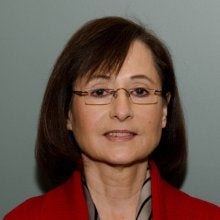
Dr. Guadalupe Valdés
Curricularizing Language: Unexamined Assumptions and Interacting Mechanisms
Abstract: This presentation will focus on the seemingly neutral activity of “teaching” and “learning” languages. It will call attention to unexamined assumptions about language instruction that are seldom problematized by both teachers and students and examine the implication of these long-established (and yet current) “curricularizing” practices for the future multicompetence of minoritized students
Bio: Guadalupe Valdés, Ph.D. is the Bonnie Katz Tenenbaum Professor of Education at Stanford University. Her research has focused on the bilingualism of Latinos in the United States. Her current NSF-funded research is concerned with the design of New Generation Science Standards materials for students who are in the process of acquiring English. Recent publications include: Latino Children Learning English: Steps in the Journey. (New York. Teachers College Press, 2010) and “Latin@s and the intergenerational continuity of Spanish: The challenges of curricularizing language.” International Multilingual Research Journal (2015).
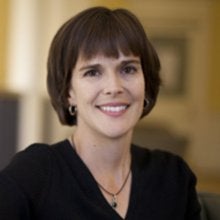
Dr. Amanda Kibler
Examining collective scaffolding through sibling and peer relationships in multilingual homes, schools, and communities
Abstract: The notion that scaffolding occurs not only through the guidance of “experts” but also collectively among peers (Donato, 1994) is an increasingly familiar notion in studies of language learning, and in this presentation, I critically explore how both siblings and peers contribute to the multilingual language and literacy development of children and adolescents from a range of home language communities. Drawing upon findings from a longitudinal qualitative study of adolescents from Mexican immigrant families, an ethnographic study of 4-6 year-olds from Mexican and Central American families interacting with their older siblings at home, and a mixed-methods study of English-learner-classified middle-schoolers from multiple backgrounds in heterogeneous classrooms, I explore what characterizes this scaffolding, what benefits it offers, and the ways in which it reflects the complex and contradictory social and linguistic positioning of non-English languages (and their speakers) in U.S. educational institutions
Bio: Amanda K. Kibler is an Associate Professor in the Department of Curriculum, Instruction, and Special Education at the University of Virginia’s Curry School of Education. Dr. Kibler’s research interests include adolescent second language development, bi/multilingualism, second language writing, peer learning, ethnography, discourse analysis, and the impacts of standards-based reform on multilingual populations. She is currently working on three main projects: 1) an eight-year study of multilingual adolescents’ longitudinal writing development, 2) a William T. Grant-funded mixed-methods study of peer interaction and social networks in linguistically diverse middle school classrooms, and 3) an ethnographic study of the home language and literacy practices of Spanish-speaking Latino preschoolers and their parents, funded by the Spencer Foundation. Her current and forthcoming publications can be found in Applied Linguistics, Journal of Second Language Writing, Language Learning, Linguistics and Education, Teachers College Record, The Modern Language Journal, and TESOL Quarterly, among others.
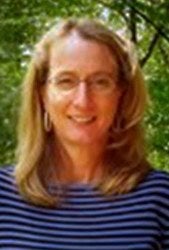
Dr. Karen E. Johnson
How do I teach something I myself don’t fully grasp?”: The development of pedagogical content knowledge in learning-to-teach
Abstract: An important dimension of language teacher professionalism is the development of a specialized kind of knowledge that teachers use to use to make the content of their instruction relevant, usable, and accessible to their students. Coined pedagogical content knowledge (PCK), because it combines knowledge of content, pedagogy, curriculum, learners, and educational context, PCK is neither fixed nor stable, but instead emergent, dynamic, and contingent on teachers’ knowledge of particular students, in particular contexts, who are learning particular content, for particular purposes. To trace the development of PCK, data were collected from an extended team teaching project in which novice ESL teachers a) conceptualize and materialize subject matter content to be taught, b) enact an initial lesson with peer teachers and the teacher educator, c) teach a revised lesson in an actual ESL class, and d) develop conscious awareness of the theoretical and pedagogical reasoning for their instructional practices. The findings illustrate how the development of PCK is supported by the dialogic interactions that emerged during this project; focusing specifically on how what teachers bring to these learning-to-teach experiences and how they are experiencing what they are learning, shape the emergent, contingent, and responsive nature of teacher educator mediation. Focusing on these dialogic interactions captures the means through which novice teachers can begin to develop pedagogical content knowledge as they are learning to teach.
Bio: Karen E. Johnson is Kirby Professor of Language Learning and Applied Linguistics at The Pennsylvania State University. Her research focuses on a sociocultural theoretical perspective on second language teacher education, the dynamics of communication in second language classrooms, and narrative inquiry as professional development. Her research has appeared most recently in The Modern Language Journal, TESOL Quarterly, Language Teaching Research, and Language and Sociocultural Theory. Most recently she is the author of Second Language Teacher Education (Routledge, 2009), co-editor of Research on Second Language Teacher Education (Routledge, 2011) and co-author of Mindful L2 Teacher Education (Routledge, 2016). In the MA TESL and the Ph.D. in Applied Linguistics degree programs, she teaches courses in Applied Linguistics, Teaching English as a Second Language, Communication in Second Language Classrooms, and Theory and Research in Language Teacher Education.
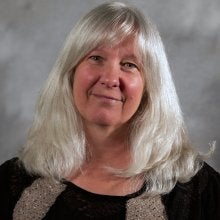
Dr. Margaret R. Hawkins
Transmodalities: Conceptualizing Semiotic Affordances in Transnational Communications
Abstract: Addressing complexities in transnational new media communications, a transmodalities lens highlights issues such as time, space and scale, and sociocultural border crossing. In this presentation, I utilize the five features of a transmodalities lens (Hawkins, 2018) to analyze digitally-mediated global youth interactions via shared videos and chats in order to demonstrate its affordances for new understandings of semiosis in transnational engagements.
Bio: Margaret R. Hawkins is a Professor in the Department of Curriculum and Instruction and the Ph.D. program in Second Language Acquisition at the University of Wisconsin-Madison. Her work, centered on engaged scholarship around issues of equity and social justice, focuses on languages, literacies and learning in classroom, home, and community-based settings in domestic, global and transnational contexts.
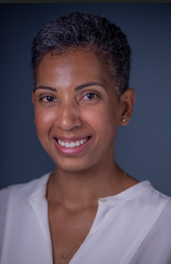
Dr. María Cioè-Peña
¿Soy Acaso Negra?: A Testimonio on the Erasure of Black Latines Within, and Beyond, Bilingual Education
Abstract: Black erasure remains a large issue within bilingual education with the standard association of Blackness in the U.S., often, equated with African American identity and English monolingualism. Conversely, most bilingual programming in the U.S. serves Spanish-users, and bilingual education research tends to center Spanish-using Latinx students and communities. Across these contexts, the focus is on language and an imagined mixed-race (i.e, mestizo) collective, centering culture to circumvent race and treating language as connective yet racially neutral. As a result, addressing issues of anti-Blackness is often viewed as beyond the scope of bilingual education. However, as critical scholars have shown, language and perceptions of language users are not racially-neutral and practices that are rooted in this ideology create more harm than good. Black people exist within Latin America, the Latin American diaspora, and bilingual education settings. Thus, Black erasure in bilingual education upholds anti-Blackness and model minority narratives in education overall and results in tangible exclusion and oppression for Black bi/multilinguals. Supported by theory and history, in this presentation, I “make visible the internal and external pressures that have contributed to silencing my voice” as a bilingual Black Latina to shed light on the continued erasure of Black students in bilingual education programs and research.
Bio: María Cioè-Peña (PhD) is Assistant Professor at the Penn Graduate School of Education. She is a bilingual/biliterate education researcher and educator who examines the intersections of disability, language, school–parent partnerships, and education policy. Taking a sociolinguistic approach and stance, she pushes and reimagines the boundaries of inclusive spaces for minoritized children. Stemming from her experiences as a former bilingual special education teacher, Dr. Cioè-Peña’s research focuses on bilingual children with dis/abilities, their families, and their ability to access multilingual and inclusive learning spaces within public schools. Her interests are deeply rooted in political economy, raciolinguistic perspectives and critical dis/ability awareness within schools and families.
Note: This event was co-sponsored by the Department of Spanish & Portuguese and the Multilingual Research Center.
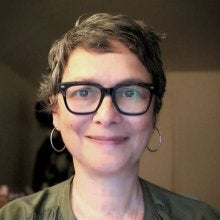
Dr. Jennifer Leeman
Beyond the English-medium classroom: Critical scholarship on language ideologies, identities and pedagogy in second and heritage language education
Abstract: Critical scholarship in the fields of English language teaching and bilingual education has analyzed how dominant language ideologies and educational practices participate in the racialization of students who speak (or who are perceived as speaking) ‘non-standard’ varieties of English and/or languages other than English. This research has been accompanied by proposals for culturally and linguistically affirming pedagogies that both celebrate students’ existing linguistic repertoires and seek to resist dominant ideologies. Because such scholarship has focused primarily on English-medium educational contexts, it has emphasized hierarchies among different varieties of English (and their speakers) and the privileged status of English vis- á-vis other languages, rather than linguistic ideologies regarding varieties of other languages. In contrast, linguistic ideologies and hierarchies regarding varieties of languages other than English have become a central concern in heritage language education, particularly Spanish heritage language education. Nonetheless, calls for critical approaches to second and heritage language education have been oriented primarily towards scholars and practitioners working in those languages. In this talk, I present critically oriented research and pedagogy from the fields of second and heritage language education, with the interrelated goals of promoting greater collaboration across disciplinary and departmental lines and highlighting how critical approaches to language education can play a central role in anti-racist, social-justice oriented curricula.
Bio: Jennifer Leeman is Professor in the Department of Modern and Classical Languages at George Mason University. Her research and teaching focus on the sociopolitics of language, with particular attention to multilingualism, Spanish in the US, and the teaching of Spanish as a heritage language. Her work is interdisciplinary and employs the theoretical frameworks and methodological approaches of critical applied linguistics and sociolinguistics while also engaging the fields of education, Latinx studies, language policy, and linguistic anthropology. Leeman has published extensively on the interplay of ideologies of language, race and nation in the US, the racialization of Spanish and Latinxs in the US, multilingual language policy and politics, heritage language education, and critical pedagogical approaches to teaching Spanish.